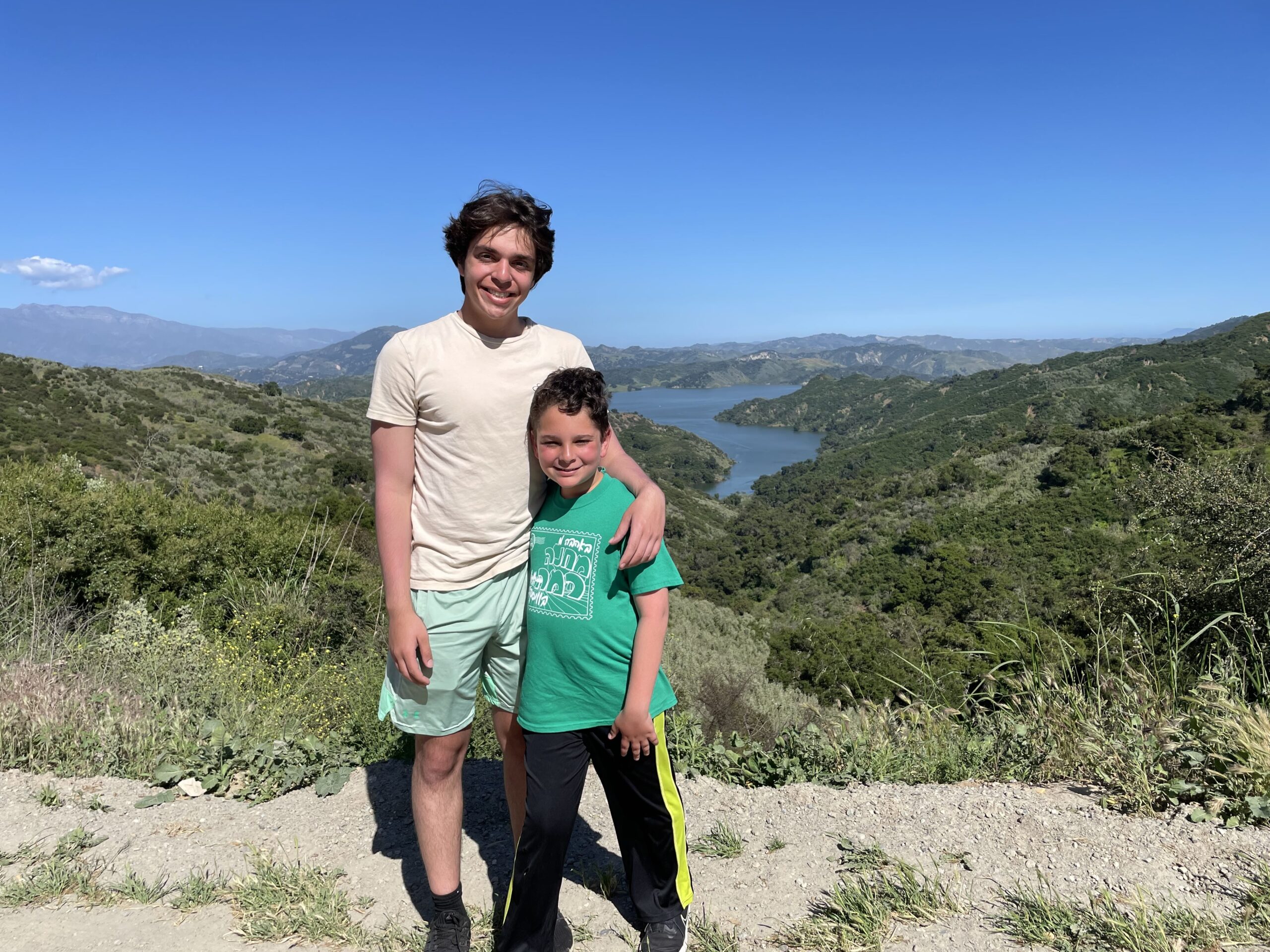
In recent days I feel like I’ve been living in a world suffused with the word camp. The encampments on college campuses, which are themselves reflective of ideological and political camps, have occupied our collective attention. As the parent of one student in college and another about to graduate high school, I have been following events with concern. As a scholar of the history of Jews and universities, I have been following them with keen interest. As an American Jew, I have been following them with a not inconsiderable dose of anxiety and worry.
Yet, in what I’m choosing to believe is a not coincidental twist, the drama on so many campuses played out while my family and I were at a different kind of camp, namely the annual Passover experience at Camp Ramah in Ojai, California. For ten days, from the day before the holiday to the morning after it concluded, we ate and talked, prayed and sang, celebrated and studied with a wonderful group of nearly 200 Jews young and old in the sunny, warm, and breathtakingly beautiful setting of the mountains north of Ventura. In the spirit of Passover, I felt like I was liberating myself from email, social media, and news feeds as I reconnected with family, friends, the Jewish people, the natural world, and the Creator. It was an incredible blessing. (Picture is of my two younger sons overlooking Lake Casitas.)
Still, many of the sessions that I and other faculty members taught inevitably focused on the questions of the day: In Israel and Gaza, of course, but also the college campuses which have become so central to American Jewish life, and the more familiar terrain of our communities and our own minds and hearts. In particular, a question that seemed to pervade the whole week was some version of, How can we stay sane in this world that is enduring so much suffering? And how can we be mindful in the face of this constant firehose of information–some of which is true, much of which is false, and the totality of which is overwhelming?
Those questions offered me an opportunity to talk about the Jewish mindfulness practices I use in my own life to try to help, which include meditation, intentional consumption of media, Tikkun Middot practice when it comes to social media posting, setting app limits, and meeting sensations of judgment with curiosity rather than conviction (“Be curious, not furious,” as one participant put it). Our practices are designed for moments like these. They can help us sustain the habits of the heart we need to live and participate wisely and mindfully as members of a diverse democracy.
Because this year is a leap year on the Jewish calendar, we encounter the somewhat unusual situation in which the Torah portion for this week that immediately follows Passover is Acharei Mot, which is about Yom Kippur. We have barely put away the matzah and our attention is turned toward the opposite end of the year and our people’s other most important holiday.
The Torah describes Yom Kippur as a “Shabbat Shabbaton,” a day of complete rest (Lev. 16:31). Commenting on this verse, Rabbi Mordechai Yosef Leiner observes that the aim of the restrictions of Yom Kippur is to help us cultivate a profound sense of yishuv hada’at, a settled and clear mind, which is the essence of Shabbat. When we can do so, he writes, the flow (shefa) of the Holy One can fill us completely, without any limitation. We can be fully present–and can be vessels for the Divine Presence.
Of course, Yom Kippur represents this dynamic at its peak–a day on which we can be particularly and especially suffused with the presence of the Holy One. Yet the kind of presence and awareness–the yishuv hada’at, the settled and clear mind at its core–is available to us every week on Shabbat, and in every moment in the form of “Shabbat Mind.” It is reflected and embodied in speech and action that is full and mindful, not empty and reactive.
These qualities, of mindful presence and expansiveness, are also related to the central theme of Passover, the exodus from Egypt–the place of narrowness and constriction. Which suggests that, though these holidays are on opposite ends of our calendar, they are profoundly connected. Political freedom is not complete without spiritual freedom, and spiritual freedom is not whole without political freedom. As we continue to witness and engage in discussion, debate, and activism centered on political camps and encampments, my humble observation is that such work, wherever we stand in relation to it, will only benefit from greater yishuv hada’at–the spiritual practices of mind and heart that weave together our larger camp that exists within, between, and among us.
Josh’s Friday Reflections
FREE
Every Friday morning, IJS President & CEO Rabbi Josh Feigelson shares a short reflection on the week in preparation for Shabbat. Josh weaves together personal experience, mindfulness practice, and teachings from the weekly Torah portion in a uniquely accessible and powerful way. Sign up to receive Josh’s weekly reflections here.
